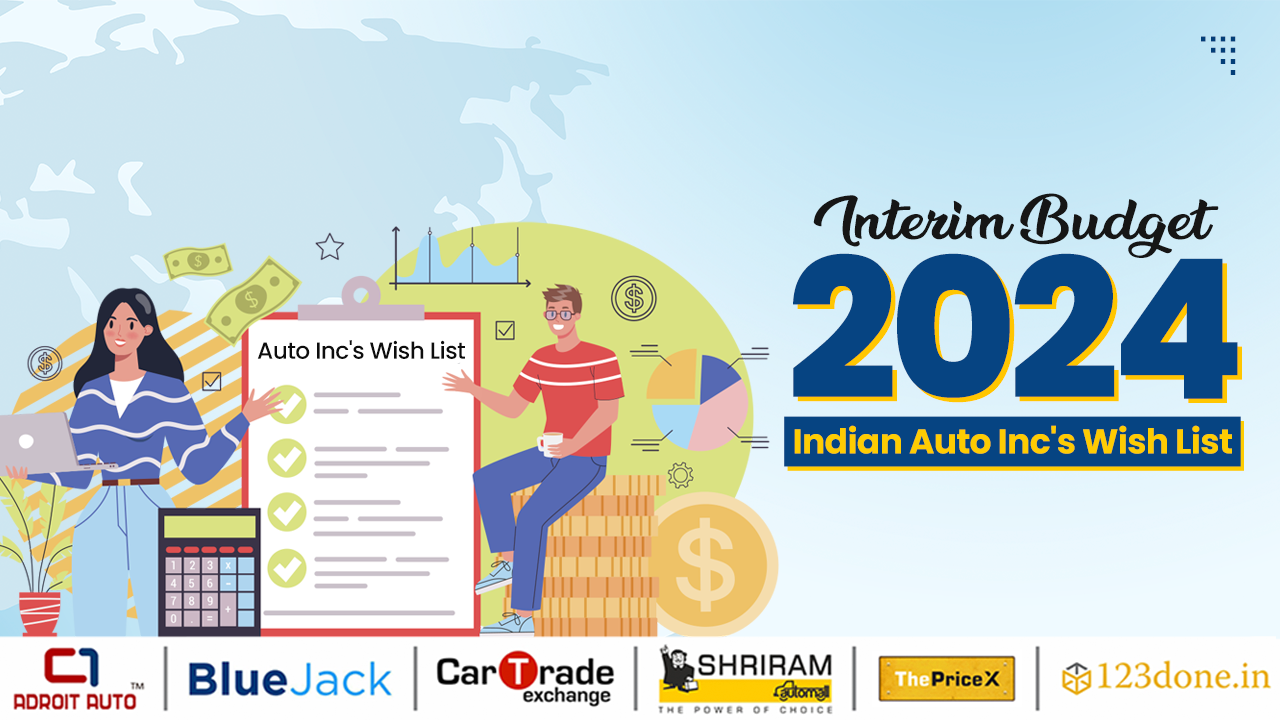Auto Industry's Wish List for Electric Mobility from Interim Budget 2024

As the automotive industry eagerly awaits Union Finance Minister Nirmala Sitharaman's presentation of the Interim Budget on February 1, 2024, expectations are high within the sector. The primary focus remains on electric mobility, EV financing, and the extension of the Faster Adoption and Manufacturing of Hybrid and Electric Vehicles (FAME) Scheme. Despite being a Vote-on-Account budget during the interim period before the 2024 Lok Sabha elections, the industry hopes for a continued impetus towards electric mobility.
Chetan Maini, Co-founder and Chairman of Sun Mobility, underscores the critical role of battery swapping in accelerating the adoption of electric mobility and meeting the ambitious 2030 targets for EV penetration. Maini anticipates the release of a comprehensive Battery Swapping Policy in Budget 2024, emphasizing the need for robust strategies in this crucial area.
Anand Bang, COO - Sales & Marketing at Tata Motors Finance, draws attention to the intrinsic connection between government-led infrastructure spending and a thriving commercial vehicle ecosystem. Bang emphasizes the importance of policy measures aligned with infrastructure development to drive growth for commercial vehicle financiers, manufacturers, and original equipment manufacturers (OEMs).
Dinesh Arjun, Co-founder and CEO of Raptee Energy, expresses hope for reduced import duties on electronic components and a significant GST reduction, specifically for lithium-ion battery packs and cells. Arjun advocates for addressing component localization and ensuring easy access to necessary components, crucial elements in empowering Indian companies within the burgeoning electric vehicle (EV) sector.
Sulajja Firodia Motwani, Founder and CEO of Kinetic Green, advocates for the inclusion of electric vehicle financing under Priority Sector Lending. She also urges the government to craft a robust export incentive policy for EVs, a move that would encourage local manufacturing to cater to global markets.
The industry's expectations extend beyond financial considerations. Niraj Rajmohan, Co-founder and CTO of Ultraviolette, acknowledges the positive impact of reduced GST rates on EVs and chargers. He advocates for a subsidy structure without segment caps, emphasizing the importance of encouraging innovation across multiple EV segments.
Raman Bhatia, Founder and Managing Director of Servotech Power Systems, highlights the significance of the Production-Linked Incentive (PLI) scheme for renewable manufacturing and viability gap funding for battery storage. Bhatia stresses the pressing needs for a revision of GST rates for the renewable energy sector and increased budgetary allocation for batteries under PLI.
Rajesh Gupta, Founder and Director of Recyclekaro, points out persistent challenges in the recycling industry and calls for streamlined recycling policies and greater incentives in the budget. Gupta emphasizes the importance of supporting waste management solutions to solidify India's position as a global leader in sustainable practices.
Uday Narang, Founder of Omega Seiki Mobility, outlines three critical factors for India's electric vehicle revolution: affordability, accessibility, and sustainability. He urges continued government support, a reduction in GST on lithium-ion batteries, and the introduction of FAME 3 with clarity on subsidies for electric trucks. Narang also emphasizes the importance of initiatives supporting battery manufacturing, skilling, and research and development in recycling.
Nikhil Bhatia, Co-founder and CBO of Hop Electric, expresses hope for the extension of demand incentives with FAME 3 and GST reform to enhance global cost competitiveness. He underscores the importance of developing protocols for better EV charging and swapping.
Nimish Trivedi, Co-founder of Evera, calls for the continuation of the existing concessional rate of import duties on lithium-ion cells in Budget 2024. Trivedi underscores the rising consumer sustainability conscience and the need for an interconnected EV ecosystem to gain momentum.
In conclusion, the automotive industry's wish list for the Interim Budget 2024 paints a comprehensive picture of the sector's aspirations for a sustainable and thriving future. The outcome of the budget will not only impact the financial landscape but will also play a pivotal role in shaping the trajectory of electric mobility and sustainability in India's automotive industry.

 Download Our App
Download Our App



